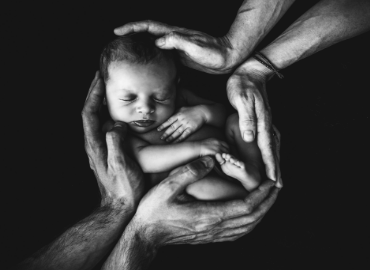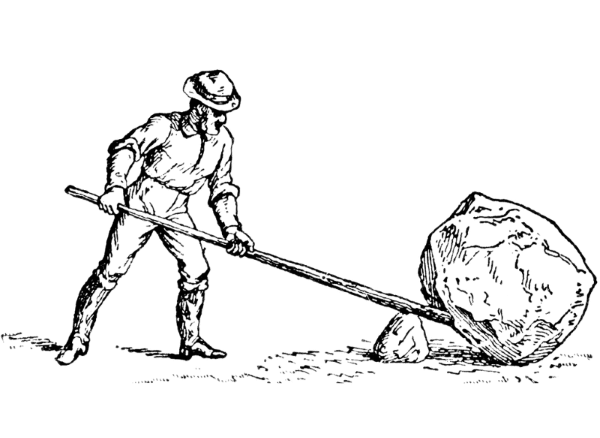
Why is it that the most strongly pro-life people are Christians? And why do so many Bible-believing pastors speak prophetically against abortion? Does the gospel require it?
Christians know abortion is not just another justice issue. Abortion represents society’s fundamental misunderstanding of what it means to be human. If we are all made in the image of God, then all people are equally valuable, without qualification.
Systemic oppression makes permanent subclasses of entire categories of people and legalizes their mistreatment. Abortion does this to preborn babies. In the Bible, justice means society’s poor and oppressed are protected. The poor and oppressed in biblical times were often the orphan and the widow. The truly poor have no legal standing, no voice, no resources of their own. Unless someone picks up their cause, they would continue to be mistreated, ignored, marginalized, even killed.
Has God obligated His people to care for the poor? Isaiah tells us what it means to ‘seek justice’: “Reprove the ruthless, defend the orphan, plead for the widow” (Is. 1:17). But is helping abortion-determined women to have their babies really necessary to be faithful to the gospel?
To answer this question, two terms must be defined; the gospel and the nature of abortion.
First, the gospel means that by Jesus’ death on the cross the poor sinner’s debt of death is completely covered. His resurrection reveals that the oppressive chains of darkness are broken, transferring us into the kingdom of God, even becoming adopted children of the King Himself.
Second, abortion represents the ultimate oppression of the poorest class of human; those without voice, power, or legal standing of their own. Abortion embodies a depth of moral darkness so absolute that the choice to kill a preborn child is promised to light a path to freedom.
Since all other categories of poor get to live, abortion represents the greatest poverty of all as it robs boys and girls of their very lives. Does the Bible allow believers room to refuse using our candles of faith to abate the darkness of abortion in service to our poorest neighbor?
What is James’ answer? Faith in Christ is directly connected with how we treat the physically poor: “If … one of you says to [the poor], ‘Go in peace, be warmed and be filled,’ and yet you do not give them what is necessary for their body, what use is that? Even so faith, if it has no works, is dead…” (Jas. 2:15-17). Apparently, if we let people slip further into destitution and death, we should ask ourselves if our faith is really alive. Faith always works for the salvation of souls. And the salvation of a soul is always connected to the body and in light of the coming resurrection, always will be. In society today, is there a person in greater need of bodily help than a preborn boy or girl whose mother blindly staggers to the slaughter?
Not only does the gospel obligate us to the poor, we do not get the luxury of choosing who among the poor qualifies for our protection, even if supporting them is unpopular. This choosiness is called partiality. “My brethren, do not hold your faith in our glorious Lord Jesus Christ with an attitude of personal favoritism…” (Jas. 2:1). According to James, refusing to work on behalf of the oppressed for fear of the oppressor, dehumanizes the poor. “But you have dishonored the poor man. Is it not the rich who oppress you and personally drag you into court?” (Jas. 2:6).
Paul makes this same point saying that to deny the poor is hypocritical to the gospel when rebuking Peter for ‘holding himself aloof’ from the perceived subclass of Gentiles (Gal. 2:12). Paul insists that Peter’s fear of what other Jews might think of his interaction with Gentiles made him a hypocrite to the gospel since his behavior caused the believing Jews not to be “straightforward about the truth of the gospel” (Gal. 2:14a).
Systemic oppression of a class of person is the worst kind of politics, creating the deepest kind of poverty, one the culture requires we ignore. The fact that the oppression exists due to the collusion of culture and unjust laws makes helping people in the oppressed classes risky and unpopular, and precisely the purview of every believer. The Bible reveals that the responsibility for blessing the society’s truly disenfranchised poor, who by definition cannot speak or act for themselves, is never the job of impersonal systems and bureaucrats. It is mine and yours. God did not create a system to save the weak and oppressed sinner but sent Christ Himself, so Paul says, “Therefore as you have received Christ Jesus the Lord, so walk in Him” (Col. 2:6).
After seventeen years of teaching and preaching the revelation Jesus had directly bestowed upon Paul concerning the gospel, he went to the Apostles in Jerusalem fearing he “might be running in vain” (Gal. 2:2b). They heard Paul’s gospel message and upon approving that message Paul reported that, “They only asked us to remember the poor—the very thing I also was eager to do” (Gal. 2:10).
Together remembering the preborn poor,

Rev. James R. Harden, M.Div.
President/CEO
P.S. “…just as Christ also loved you and gave Himself up for us,” keep on “walking in love” for the preborn boy and girl through CompassCare (Eph 5:2).

“[You] talk to me like I’m a real person…”
Pam is in her late twenties and works three jobs to provide for herself and her 5-year-old. She has no support from her family. Pam’s first interaction with CompassCare was through a virtual intake appointment, which is a recent innovation designed to boost patient show rates by building rapport with the patients quicker. Read more.

DRAMATIC Increase in Charitable Tax Incentives for 2020 Only
The Coronavirus Aid, Relief, and Economic Security Act provides a massive increase in tax deductions for charitable giving. Leverage your gifts in 2020 to save even more lives! Read more.


1 comment on “The gospel requires every Christian to oppose abortion?”